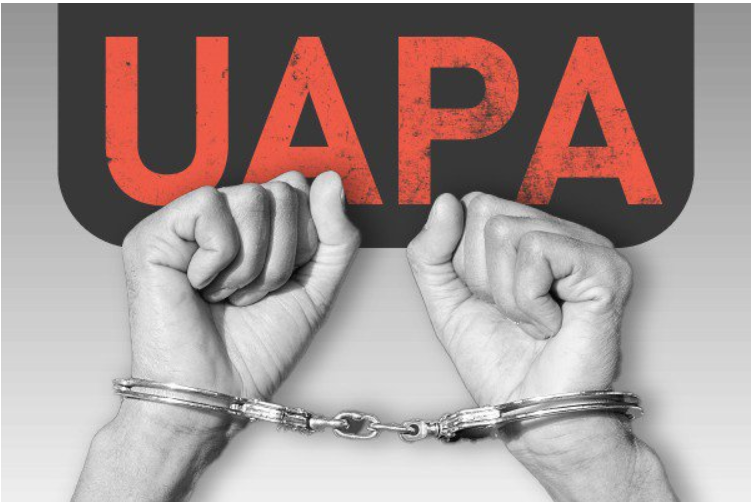





Copyright infringement not intended
Picture Courtesy: www.newsclick.in
Context: The arrest of students at an agriculture university in central Kashmir’s Ganderbal district under the Unlawful Activities Prevention Act (UAPA) has sparked outrage and concerns about the misuse of the law.
Key Highlights
|
Unlawful Activities (Prevention) Act (UAPA) ●The Unlawful Activities (Prevention) Act (UAPA) aims to prevent unlawful activities that threaten the sovereignty, integrity and security of India. The law was enacted in 1967 and has been amended several times since then, most recently in 2019. ●It empowers the central government to designate any individual or association as unlawful or terrorist if they are involved in any activities that support or incite cession or secession of any part of India, or question or deny its territorial integrity. ●It criminalizes the raising, receiving or providing of funds for terrorist acts, the membership or support of terrorist organizations, and the possession or transfer of proceeds of terrorism. ●It provides for special courts to try offences under the act, and allows for prolonged detention of suspects without bail or charge. ●It presumes the accused to be guilty unless proven innocent and makes it difficult for them to challenge the evidence against them. |
Conclusion
Must Read Articles:
UNLAWFUL ACTIVITIES (PREVENTION) ACT (UAPA): https://www.iasgyan.in/daily-current-affairs/unlawful-activities-prevention-act-uapa-32
|
PRACTICE QUESTION Q. What are the key provisions and implications of the Unlawful Activities (Prevention) Act (UAPA), and how does it impact civil liberties and security measures within the legal framework of a country? |




© 2026 iasgyan. All right reserved